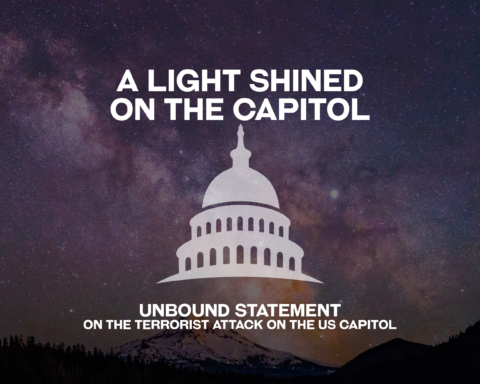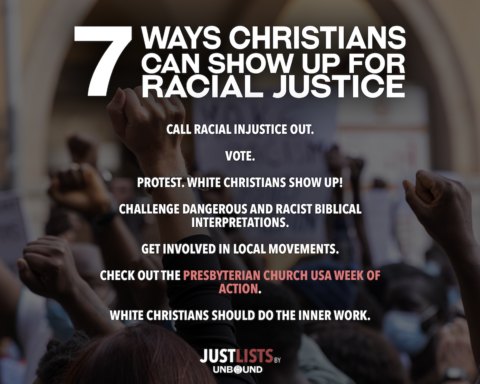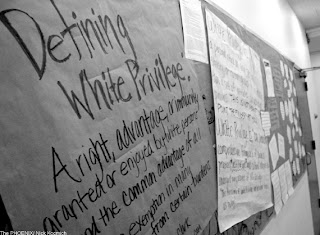
At the end of 2015, with South Africa’s summer and “festive season” in full swing, a real estate agent from Durban took to social media to complain about the crowded and unkempt state of a local beach. The commentator, a middle-aged white woman, expressed her dismay using highly insulting racist epithets. Her incendiary posting—and several similar volleys from other individuals at roughly the same time—touched off a firestorm of protest and recrimination, causing many in South Africa’s supposedly “Rainbow Nation” to confront—or deny—the forces of racism that continue to shape and distort most social interactions, whether explicitly or covertly.
Sound familiar? Like South Africa, the United States has also had to wrestle recently with frequent reminders that our multicultural society is not quite as egalitarian as we often like to think that it is. Events in Ferguson, Charleston, and Flint have all highlighted—albeit in very different ways—the extent to which race continues to shape the opportunities, risks and other realities faced on a daily basis by those who live in America. In the current issue of Unbound, editor Rev. Ginna Bairby acknowledges the subtle racism that shapes her own behavior and she calls on the PC(USA), as a denomination, to do likewise.
The Presbyterian Church (U.S.A.) is profoundly blessed to be in partnership with the Uniting Reformed Church in Southern Africa (URCSA). URCSA’s predecessor denomination gave us the Confession of Belhar that will be added to the PC(USA)’s Book of Confessions this year, assuming the 222nd General Assembly ratifies presbyteries’ decisions.
___________________________________________
“As children of God we do not have the luxury to choose whether we would like to be involved against racism,” the letter observes. “We should be involved and not on our own terms.”
___________________________________________
The URCSA has continues to grapple with Belhar’s implications for its ongoing work and ministry. Earlier this year, URCSA’s Moderamen (Executive) sent a pastoral letter on racism to all of the church’s congregations. The letter invites URCSA members to confess the ways in which racism and prejudice affect the church and damage its witness and ministry to a wounded society. Moreover, in light of Belhar, it calls Christians to action to “engage constructively with the issue of racism on different levels”.
 “As children of God we do not have the luxury to choose whether we would like to be involved against racism,” the letter observes. “We should be involved and not on our own terms. The Belhar Confession spells out the basic points of departure from which we should get involved. It challenges us to set an example or to embody what a non-racist society should look like. Obedience to Jesus Christ is the bottom-line, not obedience to one’s own race, culture, language or social economic position.” [1]
“As children of God we do not have the luxury to choose whether we would like to be involved against racism,” the letter observes. “We should be involved and not on our own terms. The Belhar Confession spells out the basic points of departure from which we should get involved. It challenges us to set an example or to embody what a non-racist society should look like. Obedience to Jesus Christ is the bottom-line, not obedience to one’s own race, culture, language or social economic position.” [1]
Among other things, the URCSA leadership calls the church to a “Season of Human Dignity” to “discern how we in South Africa are going to be obedient to Jesus”. This Season is to give expression to four core values: respect, listening, embracing, and selfless love. And while the conversation is starting with a focus on racism, the coordinating task team has identified other aspects of human dignity that also require attention: gender, sexuality, poverty, disability, health, and education and training. The Moderamen express the hope that this process will grow to include other churches, and, indeed, a joint process has already emerged to involve the other three churches in South Africa’s Dutch Reformed family.
I hope that the PC(USA) will also be moved by URCSA’s witness and will seek ways to be part of a connected global conversation about race, ethnicity, ethnocentricity, and human dignity. As we anticipate the PC(USA)’s final adoption of the Confession of Belhar in June, will we also continue to think ever more deeply about Belhar’s implications for our lives, as individuals and as a denomination? And can we find ways to have this conversation together with URCSA and the Reformed family in South Africa, as an expression of our ongoing partnership and an opportunity to learn from one another?
*****
Editor’s Note: Doug will be travelling in the United States from April through September of 2016. If you would like him to visit your church, presbytery, or gathering, email him at [email protected]. To read more from Doug, go to www.pcusa.org/Doug-Tilton
______________________________________________________________
[1] The URCSA letter was originally written in Afrikaans and translated into English. This quote includes a few minor amendments to the English version.
Read more articles in this issue Call to Confession: Race, White Privilege and the Church!






Unbound Social